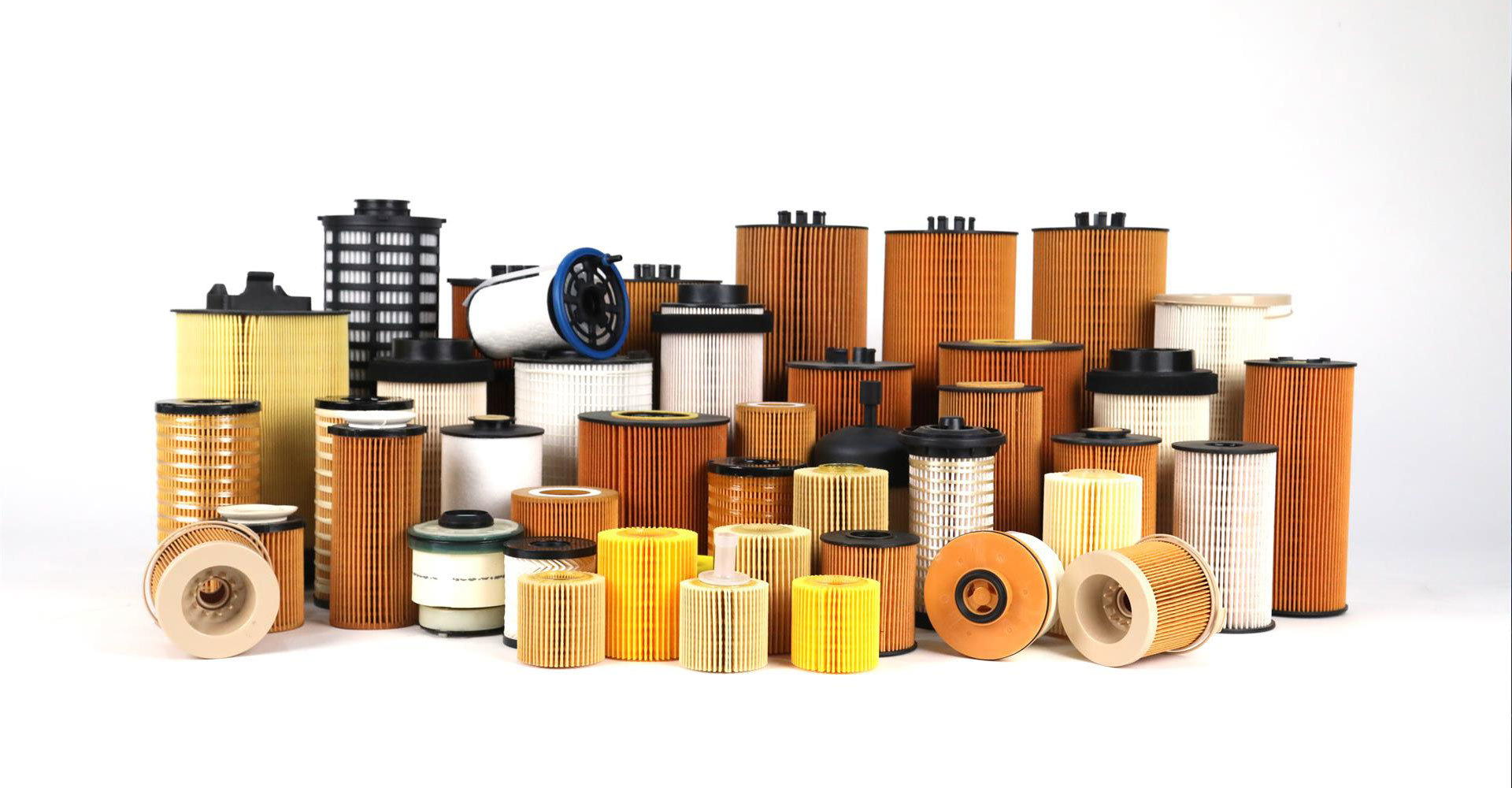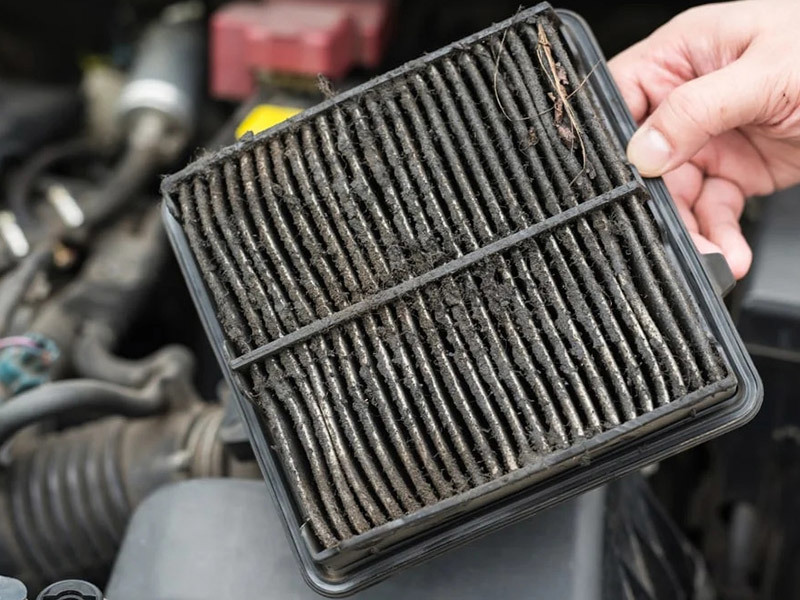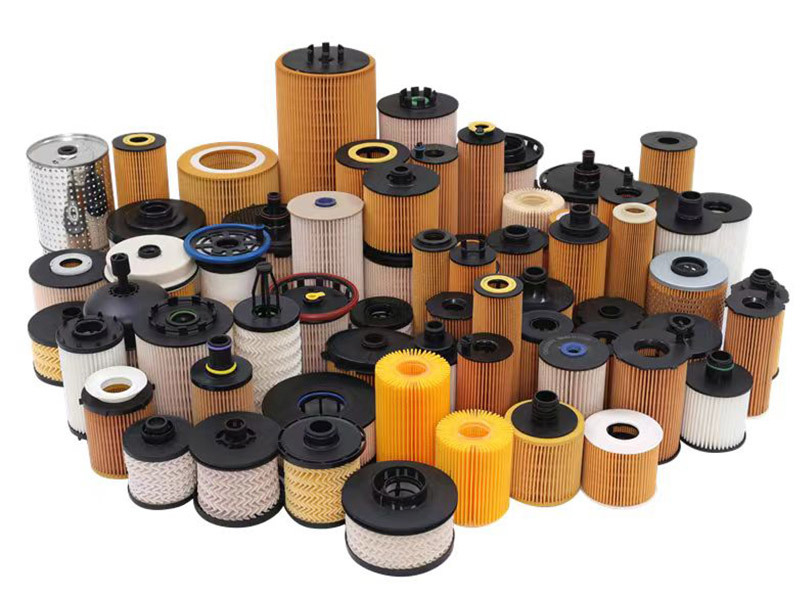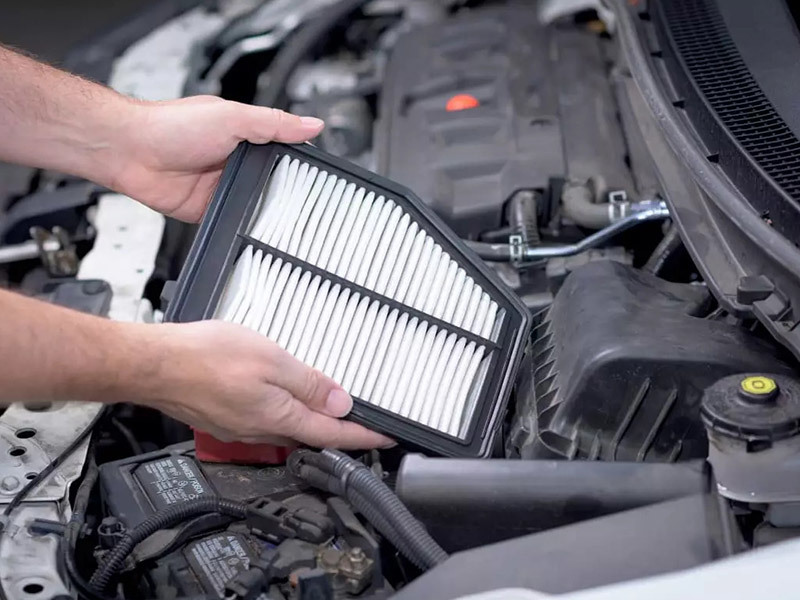Focus On Hot Spots
Contact Info
E-mail: tengsen@injenfilter.com
Business Phone: +86-18131928561
WhatsApp: +86-18131928561
Address: Ge Xianzhuang Zhen Wu Jia Na Cun Xi, Qinghe County, Xingtai City, Hebei Province
Discover the Exceptional Benefits of Upgrading to High-Quality Auto Oil Filters
Release Time:
Jul 13,2025
Discover the Exceptional Benefits of Upgrading to High-Quality Auto Oil Filters When it comes to maintaining the performance and longevity of your vehicle, few components are as critical as the **auto oil filter**. Upgrading to high-quality oil filters can transform the way your engine operates, ensuring optimal performance and efficiency. In this article, we will delve into the numerous advantage
Discover the Exceptional Benefits of Upgrading to High-Quality Auto Oil Filters
When it comes to maintaining the performance and longevity of your vehicle, few components are as critical as the **auto oil filter**. Upgrading to high-quality oil filters can transform the way your engine operates, ensuring optimal performance and efficiency. In this article, we will delve into the numerous advantages of choosing premium oil filters over standard options, helping you make an informed decision for your vehicle.
Table of Contents
- Understanding Auto Oil Filters
- The Critical Role of Oil Filters in Your Engine
- Key Benefits of High-Quality Auto Oil Filters
- Enhanced Engine Protection
- Improved Engine Performance
- Increased Lifespan of the Engine
- Better Fuel Efficiency
- How to Choose the Best Oil Filter for Your Vehicle
- Maintaining Your Auto Oil Filter
- Common Myths About Oil Filters
- FAQs About Auto Oil Filters
- Conclusion
Understanding Auto Oil Filters
Auto oil filters are essential components designed to remove contaminants from engine oil. They play a pivotal role in maintaining the cleanliness and effectiveness of the oil circulating through your engine. By filtering out dirt, debris, and other particles, oil filters help ensure that the oil remains clean and effective in lubricating engine parts.
The Critical Role of Oil Filters in Your Engine
The oil filter's primary function is to ensure that only clean oil circulates within the engine. Over time, engine oil can accumulate particles that can lead to wear and tear. A high-quality oil filter ensures that these contaminants are effectively captured, preventing them from causing damage to critical engine components. This functionality is crucial for performance, longevity, and overall vehicle health.
Key Benefits of High-Quality Auto Oil Filters
Choosing high-quality auto oil filters offers numerous advantages over standard filters. Here are some of the most significant benefits:
Enhanced Engine Protection
High-quality oil filters are designed with advanced filtration technology that captures even the smallest particles. This capability significantly reduces the risk of engine wear, ensuring that moving parts are lubricated with clean oil. In contrast, standard filters may not provide the same level of protection, leaving your engine vulnerable to damage.
Improved Engine Performance
When your engine operates with clean oil, it performs more efficiently. High-quality oil filters facilitate smoother oil flow, which translates to better engine performance. This enhanced performance can result in faster acceleration, improved responsiveness, and an overall smoother driving experience.
Increased Lifespan of the Engine
Investing in high-quality oil filters not only protects your engine but also contributes to its longevity. By minimizing wear and tear, you can extend the lifespan of your engine, leading to significant savings in repair and replacement costs. Regular maintenance with premium oil filters can help ensure that your vehicle remains in optimal condition for years to come.
Better Fuel Efficiency
Another noteworthy advantage of high-quality oil filters is their impact on fuel efficiency. Clean oil promotes efficient combustion, which can improve fuel economy. As a result, your vehicle may require less fuel to operate, leading to cost savings at the pump and a reduced environmental footprint.
How to Choose the Best Oil Filter for Your Vehicle
Selecting the right oil filter is essential for reaping the benefits mentioned above. Here are some key factors to consider when choosing an oil filter:
1. Compatibility with Your Vehicle
Always ensure that the oil filter you choose is compatible with your specific vehicle make and model. Refer to your vehicle's owner manual or consult with a professional to verify compatibility.
2. Quality Certification and Standards
Look for oil filters that meet or exceed industry standards. Filters that are certified by organizations such as the American Society for Testing and Materials (ASTM) or the Society of Automotive Engineers (SAE) are typically of higher quality.
3. Filtration Technology
Research the filtration technology used in different oil filters. Premium filters often feature advanced materials and designs that enhance their ability to capture contaminants.
4. Brand Reputation
Consider opting for established brands known for their quality and reliability. Brands with a good reputation often invest in research and development to create superior products.
5. Price vs. Value
While high-quality oil filters may come at a higher price point, consider the value they provide in terms of engine protection and longevity. Investing in a premium filter can save you money in the long run.
Maintaining Your Auto Oil Filter
Proper maintenance of your oil filter is essential for ensuring its effectiveness. Here are some maintenance tips:
1. Regular Oil Changes
Changing your engine oil regularly, along with the oil filter, is crucial for maintaining engine health. Follow the manufacturer’s recommendations for oil change intervals.
2. Monitor Oil Pressure
Keep an eye on your vehicle's oil pressure gauge. If you notice any fluctuations or warnings, it may indicate an issue with your oil filter or oil circulation.
3. Inspect for Leaks
Regularly inspect your oil filter and surrounding areas for signs of oil leaks. Address any leaks promptly to prevent further damage to your engine.
Common Myths About Oil Filters
Despite the importance of oil filters, several myths persist. Here, we debunk some common misconceptions:
Myth 1: All Oil Filters are the Same
While all oil filters serve the same basic purpose, their construction and filtration capabilities can vary significantly. High-quality filters offer superior performance compared to standard options.
Myth 2: Changing Oil Filters is Not Necessary for Every Oil Change
Neglecting to change the oil filter during oil changes can lead to contaminated oil circulating through the engine. Always change the filter to maintain optimal engine health.
Myth 3: Expensive Filters are Not Worth the Investment
Investing in a high-quality oil filter can save you money in the long run by preventing engine wear and extending the lifespan of your vehicle. Consider the overall value rather than just the upfront cost.
FAQs About Auto Oil Filters
1. How often should I replace my oil filter?
It is generally recommended to replace your oil filter every time you change your engine oil, which is typically every 3,000 to 7,500 miles, depending on your vehicle and oil type.
2. Can I use a different brand of oil filter than what is recommended?
While some filters may fit, it’s best to use filters that are specifically recommended for your vehicle to ensure optimal performance and compatibility.
3. What happens if I don’t change my oil filter?
Failing to change your oil filter can lead to contaminated oil circulating through your engine, which can cause increased wear, overheating, and ultimately engine failure.
4. Are high-quality oil filters worth the extra cost?
Yes, high-quality oil filters provide better filtration, enhanced engine protection, and can lead to improved performance and fuel efficiency, making them a worthy investment.
5. How can I tell if my oil filter needs to be replaced?
Signs that your oil filter may need replacement include a drop in oil pressure, oil leaks, and unusual engine noises. If you experience any of these symptoms, it’s advisable to inspect the filter.
Conclusion
Upgrading to high-quality auto oil filters is a crucial step in maintaining your vehicle's performance and longevity. By investing in premium filters, you can experience enhanced engine protection, improved performance, better fuel efficiency, and increased lifespan of your engine. With the right choice and regular maintenance, your vehicle will thank you with smoother rides and fewer trips to the mechanic. Prioritize quality when it comes to oil filters, and enjoy the many benefits that come with it.
Key words:







